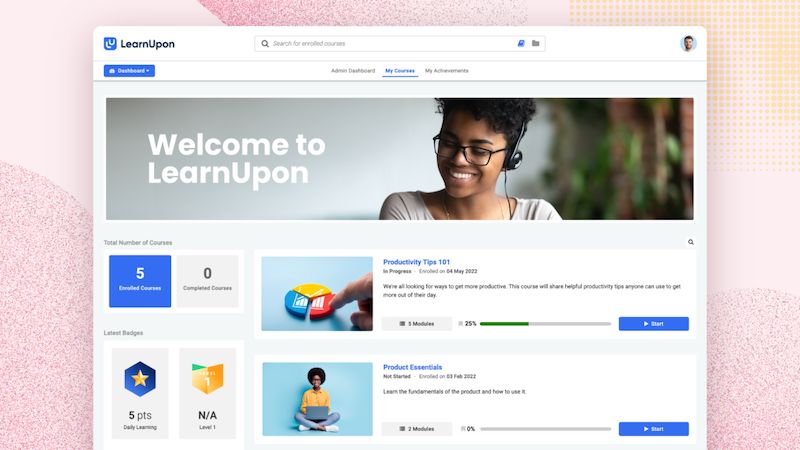
4 Advantages of Using an Open Source LMS
Hosted platforms for eLearning courses are extremely tempting for what they offer but they come at a price and are a poor choice for people who are ambitious about creating online courses. If you are a regular creator and pursue it passionately, try an open-source LMS instead.
To build any software, one has to work with codes, just like the DNA in humans. When the code is publicly available to everyone, it is referred to as open source and that is why anyone with programming skills can inspect or edit the codes by directly going into them.
But open-source is more than that. It is also a broader culture built on collaboration, transparency, and peer-to-peer sharing.
To sum it up in a few words, An open-source learning management system is a platform where the code, training, and branding can be freely modified. LearnUpon is a good example of an open-source LMS and is popularly chosen by many.
Beyond this, there are more advantages that an open source LMS brings. Here are some of them:
Control over content
When you begin using a hosted LMS, you may construct your course using the tools available at the time. But what if your LMS decides to discard one of your favorite features?
When a tool you strongly relied on is no longer available, your content will be affected, and sections of your course will no longer operate properly.
You may find your way around it, but you will always remain at the mercy of what your hosted platform is bringing to you.
With open source, you will be the controller of your content. You will choose what tools are used and change them when needed.
Scalable
When you hold the power over your content, you also hold the freedom to trade. Because open-source LMSs are web-based and “open,” you are not limited to a single platform. You don’t want to be tied to a single content vendor because your LMS requirements may change in the future and you want to have plenty of space to practice that.
You can consume content created by a wide range of authors and even sell your own branded content with an open-source framework. If you are serious about establishing a brand image and reputation, go ahead and create a unique color theme and design for your courses.
Your platform should evolve alongside you. Scalability is built into open-source learning management systems. You can increase access to resources or decrease bandwidth to meet the needs of the present, but with the confidence that the system will meet your needs now and in the future.
Option to prioritize updates
In terms of updates, your hosted LMS will release new features on a regular basis. They will, however, do it in their own time which might not match your priorities and your customer demands.
To get a feature on the production list, enough users must request it, and even then, it must be produced, tested, and published. As a consequence, fresh upgrades will unavoidably lag behind industry trends, causing your course to lag behind them.
When using an open-source LMS, the production timetable is in your hands. You determine it by your priorities. You must either develop those upgrades yourself or find a plugin that has already done so. You will never be in the situation of unending wait for a new feature to arrive.
Your customer data and community
You are like an adjusted guest on hosted platforms. When you leave, you leave your customers behind. In such cases, you may not be able to quickly migrate that client data to your new platform, and the LMS connectors will limit the data you collect. This breaks your connection with your audience and you are needed to start again.
However, with an open-source LMS, you not only have more control over the data you collect from your students, but you can also ensure that it is handled ethically and securely. That may be more important than ever in the age of GDPR compliance.
Always a good idea
Open source LMS makes sure you own your business. It lets you upgrade, customize, design, and run your course as you require without much restraint.
But it is always a good idea to explore options in deciding which open-source LMS works for you. Every LMS will definitely bring some benefits. What you need to evaluate is whether or not its features can support your objectives.


